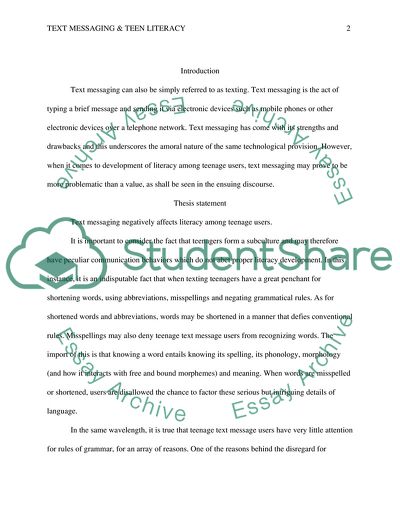Cite this document
(How Does Text Messaging Affect Teen Literacy Essay Example | Topics and Well Written Essays - 1500 words, n.d.)
How Does Text Messaging Affect Teen Literacy Essay Example | Topics and Well Written Essays - 1500 words. https://studentshare.org/education/1830493-how-does-text-messaging-affect-teen-literacy
How Does Text Messaging Affect Teen Literacy Essay Example | Topics and Well Written Essays - 1500 words. https://studentshare.org/education/1830493-how-does-text-messaging-affect-teen-literacy
(How Does Text Messaging Affect Teen Literacy Essay Example | Topics and Well Written Essays - 1500 Words)
How Does Text Messaging Affect Teen Literacy Essay Example | Topics and Well Written Essays - 1500 Words. https://studentshare.org/education/1830493-how-does-text-messaging-affect-teen-literacy.
How Does Text Messaging Affect Teen Literacy Essay Example | Topics and Well Written Essays - 1500 Words. https://studentshare.org/education/1830493-how-does-text-messaging-affect-teen-literacy.
“How Does Text Messaging Affect Teen Literacy Essay Example | Topics and Well Written Essays - 1500 Words”. https://studentshare.org/education/1830493-how-does-text-messaging-affect-teen-literacy.


